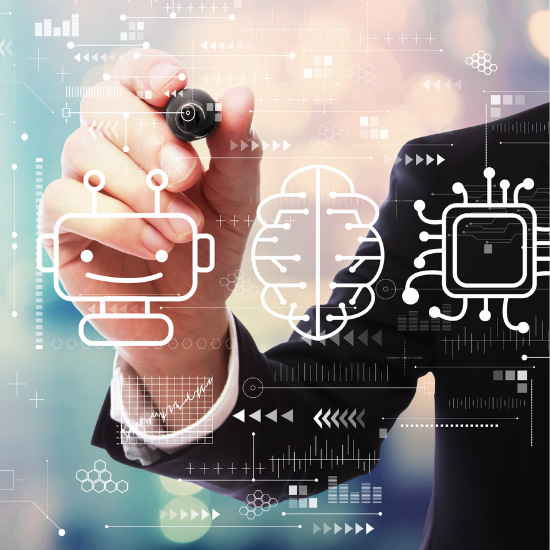Reliable AI
One problem that will not go away is the risk of AI producing nonsense, since AI creates only the most likely response, which is not always the correct one. We can put all sorts of safeguards around it–or pay companies lots of money to provide better AIs–but the number of mistakes and inaccuracies will never be zero. This may be fine for some applications, where the risk related to hallucinations and inaccuracies is acceptable. But for many other applications, we will see an increasing need for environments that increase the transparency and reliability of AI to detect and handle those risks.
Agentic AI
Agentic AI will make less headlines, but not disappear. The big bold vision that cleverly interacting AIs will make completely autonomous and complex decisions, will not materialize anytime soon–-but we will see more practical setups that do use elements of AI agents underneath the hood. Firstly, because specialized AIs perform better for more specialized tasks. But secondly, because more specialized AIs tend to be smaller and less expensive to run. Expect agentic AI to continue to gradually improve, and one day - but likely not next year - we will have that assistant that knows and does it all.
Valuable AI
The initial hype is over - many cool AI applications are now under scrutiny: do they really deliver value? Are they saving time, making people more efficient, and saving money? The risk here is that some of those experiments are being stopped too early, and teams revert to old, less sophisticated tools. Picking the areas where it’s worth investing a bit more energy and patience will be an interesting challenge for many organizations. There are still tons of developments in the AI field, so we need to make sure we continue to investigate what works and what’s just a shiny demo.
Controlled AI
Not surprisingly, this list also contains the topic that keeps compliance officers and CDOs up at night: Governance. Organizations are going to need more flexibility than to mandate “inhouse AI only,” – so they’ll need to monitor consumption and be absolutely certain nobody sends the wrong data to the wrong AI. To keep the creative juices flowing, we will see data & AI governance joining forces. Just like access to data needs to be governed, so does access to AIs and what one can do with specific AIs.
Predictive AI
This term keeps coming up more and more. And essentially it just says: not everything we used before GenAI was bad. Because many people now have a hammer called GenAI, suddenly, everything looks like a nail. But many applications can actually be solved better and way more (cost) efficiently using classic analytics techniques. In 2025, many predictive AI use cases will resurface. We will also see many hybrid approaches, where classic analytics is augmented with GenAI techniques.
Collaborative AI
Collaboration has always been a struggle for data teams. Some like R, some prefer Python, others code in SQL. And now we also have GenAI APIs as part of that tool box. Providing a collaborative environment that allows those experts work together with AI *and* explain what they were doing to their bosses will become even more important. We’ll continue to see more advanced low-code tools slapped on top of coding environments, but we will also start to see more intuitive environments such as visual workflows continue to gain popularity. They are easier to get started with, abstract away the technical details, scale to complex data work, and let people, together with AI, focus on what they care about: getting insights from data.
Not just AI
Not every data problem will be solved by AI. How do we make sure everybody in my organization can make sense of data? The more routine questions will increasingly be answered by an AI directly (but can you really rely on that answer?). For more complex analyses it will continue to be important for humans to understand what their colleagues were doing with the data. They will not care about the actual implementation or technology (the how) but they will need to understand and interpret the actual result (the what). A solid understanding of statistics, machine learning, and other analytical techniques will continue to be essential to continue to trust your colleagues - and, increasingly, also AI’s, work. Ok, also this prediction has a touch of AI to it…
